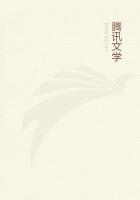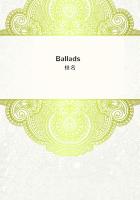Soc. And which is the greater disgrace?-Answer.
Pol. To do.
Soc. And the greater disgrace is the greater evil?
Pol. Certainly not.
Soc. I understand you to say, if I am not mistaken, that the honourable is not the same as the good, or the disgraceful as the evil?
Pol. Certainly not.
Soc. Let me ask a question of you: When you speak of beautiful things, such as bodies, colours, figures, sounds, institutions, do you not call them beautiful in reference to some standard: bodies, for example, are beautiful in proportion as they are useful, or as the sight of them gives pleasure to the spectators; can you give any other account of personal beauty?
Pol. I cannot.
Soc. And you would say of figures or colours generally that they were beautiful, either by reason of the pleasure which they give, or of their use, or both?
Pol. Yes, I should.
Soc. And you would call sounds and music beautiful for the same reason?
Pol. I should.
Soc. Laws and institutions also have no beauty in them except in so far as they are useful or pleasant or both?
Pol. I think not.
Soc. And may not the same be said of the beauty of knowledge?
Pol. To be sure, Socrates; and I very much approve of your measuring beauty by the standard of pleasure and utility.
Soc. And deformity or disgrace may be equally measured by the opposite standard of pain and evil?
Pol. Certainly.
Soc. Then when of two beautiful things one exceeds in beauty, the measure of the excess is to be taken in one or both of these; that is to say, in pleasure or utility or both?
Pol. Very true.
Soc. And of two deformed things, that which exceeds in deformity or disgrace, exceeds either in pain or evil-must it not be so?
Pol. Yes.
Soc. But then again, what was the observation which you just now made, about doing and suffering wrong? Did you not say, that suffering wrong was more evil, and doing wrong more disgraceful?
Pol. I did.
Soc. Then, if doing wrong is more disgraceful than suffering, the more disgraceful must be more painful and must exceed in pain or in evil or both: does not that also follow?
Pol. Of course.
Soc. First, then, let us consider whether the doing of injustice exceeds the suffering in the consequent pain: Do the injurers suffer more than the injured?
Pol. No, Socrates; certainly not.
Soc. Then they do not exceed in pain?
Pol. No.
Soc. But if not in pain, then not in both?
Pol. Certainly not.
Soc. Then they can only exceed in the other?
Pol. Yes.
Soc. That is to say, in evil?
Pol. True.
Soc. Then doing injustice will have an excess of evil, and will therefore be a greater evil than suffering injustice?
Pol. Clearly.
Soc. But have not you and the world already agreed that to do injustice is more disgraceful than to suffer?
Pol. Yes.
Soc. And that is now discovered to be more evil?
Pol. True.
Soc. And would you prefer a greater evil or a greater dishonour to a less one? Answer, Polus, and fear not; for you will come to no harm if you nobly resign yourself into the healing hand of the argument as to a physician without shrinking, and either say "Yes" or "No" to me.
Pol. I should say "No."
Soc. Would any other man prefer a greater to a less evil?
Pol. No, not according to this way of putting the case, Socrates.
Soc. Then I said truly, Polus that neither you, nor I, nor any man, would rather, do than suffer injustice; for to do injustice is the greater evil of the two.
Pol. That is the conclusion.
Soc. You see, Polus, when you compare the two kinds of refutations, how unlike they are. All men, with the exception of myself, are of your way of thinking; but your single assent and witness are enough for me-I have no need of any other, I take your suffrage, and am regardless of the rest. Enough of this, and now let us proceed to the next question; which is, Whether the greatest of evils to a guilty man is to suffer punishment, as you supposed, or whether to escape punishment is not a greater evil, as I supposed.
Consider:-You would say that to suffer punishment is another name for being justly corrected when you do wrong?
Pol. I should.
Soc. And would you not allow that all just things are honourable in so far as they are just? Please to reflect, and, tell me your opinion.
Pol. Yes, Socrates, I think that they are.
Soc. Consider again:-Where there is an agent, must there not also be a patient?
Pol. I should say so.
Soc. And will not the patient suffer that which the agent does, and will not the suffering have the quality of the action? I mean, for example, that if a man strikes, there must be something which is stricken?
Pol. Yes.
Soc. And if the striker strikes violently or quickly, that which is struck will he struck violently or quickly?
Pol. True.
Soc. And the suffering to him who is stricken is of the same nature as the act of him who strikes?
Pol. Yes.
Soc. And if a man burns, there is something which is burned?
Pol. Certainly.
Soc. And if he burns in excess or so as to cause pain, the thing burned will be burned in the same way?
Pol. Truly.
Soc. And if he cuts, the same argument holds-there will be something cut?
Pol. Yes.
Soc. And if the cutting be great or deep or such as will cause pain, the cut will be of the same nature?
Pol. That is evident.
Soc. Then you would agree generally to the universal proposition which I was just now asserting: that the affection of the patient answers to the affection of the agent?
Pol. I agree.
Soc. Then, as this is admitted, let me ask whether being punished is suffering or acting?
Pol. Suffering, Socrates; there can be no doubt of that.
Soc. And suffering implies an agent?
Pol. Certainly, Socrates; and he is the punisher.
Soc. And he who punishes rightly, punishes justly?
Pol. Yes.
Soc. And therefore he acts justly?
Pol. Justly.
Soc. Then he who is punished and suffers retribution, suffers justly?
Pol. That is evident.
Soc. And that which is just has been admitted to be honourable?
Pol. Certainly.
Soc. Then the punisher does what is honourable, and the punished suffers what is honourable?
Pol. True.
Soc. And if what is honourable, then what is good, for the honourable is either pleasant or useful?
Pol. Certainly.















